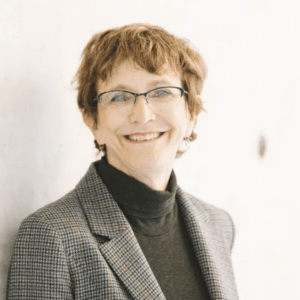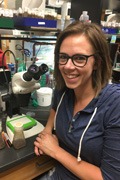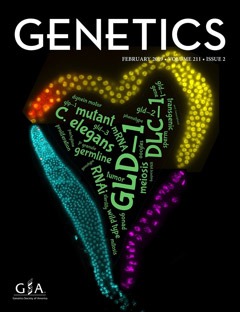International Seminar Series
The Brazilian Genetics Society (SBG), Genetics Society of America (GSA), Latin American Association of Genetics (ALAG), and International Genetics Federation (IGF) are collaborating to host a series of international seminars (in English, via Zoom) highlighting scientists in North, Central, and South America. These one-hour virtual events will showcase the high-quality research being conducted across this region, cover diverse areas in genetics, and foster interactions between research groups. The seminars will be held six times a year and feature speakers from various countries in North, Central, and South America. Each seminar will have dedicated time for audience Q&A with the speaker.
The seminars are free, but registration is required.
Upcoming seminars:
Brenda Andrews: Title to be announced!
August 14, 2023 from 4:00 PM – 5:00 PM Eastern
Speaker

Brenda Andrews is a geneticist recognized for her functional genomics work in the budding yeast model system. She is known particularly for her studies on cell cycle-regulated transcription and protein kinase function in yeast and for pioneering work with Charles Boone on genetic networks. Dr. Andrews was born in Clinton, Ontario, Canada and grew up in Toronto. She graduated from the University of Toronto with a PhD in Medical Biophysics in 1986 and pursued postdoctoral training in genetics with the late Dr. Ira Herskowitz at the University of California San Francisco. In 1991, Dr. Andrews was recruited to the Department of Medical Genetics (now Molecular Genetics) at the University of Toronto. She became Chair of the Department in 1999, a position she held for 5 years before assuming a position as Chair of the Banting & Best Department of Medical Research and as the inaugural Director of the Donnelly Centre. She continued as Director of the Donnelly Centre and Charles H Best Chair of Medical Research until 2020 and was named a University Professor in 2017. Dr. Andrews is a Companion of the Order of Canada, an elected Fellow of the Royal Society of Canada, the American Association for the Advancement of Science and the American Academy of Microbiology, and an International Member of the National Academy of Sciences (USA).
Moderator

Dr. Francisco A Cubillos obtained his PhD in 2010 at the University of Nottingham, UK, under the supervision of Prof. Edward J Louis and Dr. Gianni Liti. The research carried out by Cubillos during his PhD studies were focused in understanding the genetic architecture of complex traits in a model organism, like yeast (Saccharomyces cerevisiae). The major finding was that in most cases the genetic background interaction together with the environment specifically determined the variants underlying differences between individuals. Moreover, it was seen that genotypes differentially respond to growth conditions due to independent genomic regions responsible for the phenotypic differences. This study represents the first one in demonstrating the complex G x E interactions in yeast and is being highly cited nowadays. In parallel, an active collaboration with Dr. Warringer from University of Gothenburg lead to a series of highly cited papers describing the phenotypic landscape in yeast, where Dr Cubillos had a crucial role in identifying the genes responsible for those phenotypic differences and its subsequent validation. Since then, Dr Cubillos has been involved in several research projects in yeast with collaborators around the world aiming to decipher the genetics behind phenotypic variation
After completing his PhD, Dr Cubillos moved to the INRA-Versailles Research Centre in Paris, France to carry out his Post-Doctoral studies in the model organism Arabidosis Thaliana in the laboratory of Dr. Olivier Loudet. Was during this time, that Dr Cubillos began to work in natural variation in expression traits to understand the role of non-coding regions in plant adaptation to extreme environments, particularly, drought stress. In this context, several ‘Omics’ approaches were used, like RNA-Seq, DNA-seq and the sequencing of epigenomes in order to dissect the molecular bases behind expression differences between natural accessions. During this time, Dr Cubillos obtained a returning grant awarded by CONICYT to return to Chile and establish his own research group.
The current research line lead by Dr. Cubillos is focused in natural genetic and phenotypic variation in S. eubayanus, one of the lager yeast parents. For this, Dr Cubillos has obtained several research and international collaboration grants. The current grants by Dr Cubillos aim to isolate and characterise strains at the molecular level for biotechnological applications.
Previous Seminars
Adalberto Luis Val: Fish of the Amazon and climate change
May 22 2023
Kym Boycott: A Diagnosis for All Rare Genetic Diseases: The Horizon and Next Frontiers
March 7, 2023
Alberto R. Kornblihtt: Chromatin control of alternative splicing: towards a combined treatment of Spinal Muscular Atrophy
December 5, 2022
Hopi Hoekstra: The genetic basis of evolutionary change: how (wild) mice adapt to novel habitats
November 7, 2022



